This article was co-authored by Deb Schneider, LCSW, PPSC. Deb Schneider is a Licensed Clinical Social Worker in private practice in Oakland, CA, and a Program Manager for the Weiland Health Initiative at Stanford University. With over 15 years of experience, she specializes in creating safe spaces, respectful of marginalized identities, at the high school and college levels. Deb holds a Bachelor’s degree in Sociology and Women's Studies from Clark University and a Master of Social Work (MSW) with Health Concentration from the University of California, Berkeley School of Social Welfare.
There are 8 references cited in this article, which can be found at the bottom of the page.
This article has been viewed 66,945 times.
Telling a friend that you want to be more than just friends can be hard. It can be really nerve-wrecking if you're bisexual. You may wonder how your friend feels about a same-gender relationship, and how they feel about you. As hard as it may seem, you can handle asking your friend out. Whether you need to let them know you’re bisexual and interested in them, convince them to try a new type of relationship, or just ask them out, you can become more than friends with your friend.
Steps
Revealing Your Bisexuality and Your Interest
-
1Determine their views on bisexuality in general. Before you can become more than friends, you have to determine if your friend is open in general to being in a relationship with someone that is bisexual. Knowing how they feel about it will let you know whether you have a chance for more than friendship.
- You can ask them directly by saying something like, “How do you feel about dating someone that is bisexual?”
- Play a game like ‘Would You Rather’, ‘Truth or Dare’, or ‘What if’ to indirectly ask their feelings.
- For instance, “Tell me what you truly think about bisexual relationships or, “What would you do if you found out I was bisexual?”
- If your friend responds negatively, you may want to think about whether becoming more than friends is a good idea.
-
2Tell your friend you are bisexual. If your friend doesn’t already know, then you’ve got to tell them. As scary as the thought of this might be, the only way you are going to become more than friends is if you let them know you are bisexual.
- You don’t have to make a big deal out of it, just mention it as part of normal conversation.
- You can say it directly but casually with something like, “And since I’m bi, my mom tries to hook me up with double the people! She’s relentless”
- You can get them to ask you by saying something like, “The Pride Parade seems like it’s going to be fun.”
- They will probably ask if you are gay and you can respond, “I’m bi.”
Advertisement -
3Use body language to show your interest. It’s one great way to flirt and show that you want to become more than friends without saying it.[1] It’s also a way to tell how into you they might be without asking.
- Touch their arm, hand, or knee briefly while you are talking. Look at them for just a moment longer than needed to indicate that you want to be more than friends.[2]
- Pairing your gaze with a touch definitely sends the message that you have some interest in being more than friends.
- For instance, when you compliment your friend on their haircut, keep looking into their eyes for a second or two. If you’re feeling bold, touch their hair teasingly, also.
- Notice how they react. If they gaze back or smile, it may be a sign they want to be more than friends, too. If they shrink away from your touch, you may need to reconsider becoming more than friends.
-
4Don't rush it. Even though you want to become more than friends and are flirting with your friend, take things slowly. It will be easier to become more than friends if your friend doesn’t feel pressured. Rushing things will only make it awkward for both of you.
- Your friend may need to time to get used to you flirting with them. This might be even more true if they have never dated someone of the same gender or another gender.
- They may also need to time to adjust to the fact that you are bisexual. Depending on their views, this may be easy or hard for them to accept.
Convincing a Friend to Try a Different Type of Relationship
-
1Ask how they feel about dating in general. If they aren’t giving you clues about how they feel about being in a relationship right now, then just ask them. Once you ask them about it, you’ll know whether you have a chance at becoming more than friends.[3]
- Start the conversation by talking about your thoughts on dating. For example, you could say, “I keep seeing couples. I’d like to be in a relationship with the right person.”
- Then you can ask if they want to be in a relationship or date in general. You might say, “So, what’s up with you and dating? Are you open to it or not so much?”
- If they don’t talk about having feelings for anyone else or hint that they haven’t found the right person, you probably have a chance.
- If your friend is constantly talking about one person or outright says they have a crush on someone, now might not be the best time to try to become more than friends.
-
2Convince them to try a same gender relationship. You may have to discuss some of your friend’s concerns about dating someone of the same gender. This may be especially true if you want to become more than friends with someone that has never dated someone of the same gender, or had a bad experience with it in the past.
- Explain that dating someone of the same gender doesn’t mean you are gay.[4]
- You could say, “Dating a guy doesn’t necessarily mean you are gay. You might be bi, or something else. Only you can define who you are, though.”
- Point out the benefits of same-gender relationships. For example, “In my opinion, dating girls is fun because they already understand what it’s like to be a girl.”
-
3Get them to give a relationship between you two a shot. Before you can become more than friends with an LGBTQ friend, you may need to talk about misperceptions about LGBTQ relationships.
- Describe the reasons why you date people of a gender different gender from yours.
- For instance you could tell your gay friend, “Even though I like guys, too, I also like the fresh perspective a girl brings to a relationship.”
- Dispel any myths or false ideas they have about heterosexual relationships.
- For example, you might tell your lesbian crush, “You say all men are dogs, but I’m a guy. And you always say I’m great!”
Becoming More Than Friends (in Any Situation)
-
1Communicate more often. Talking with your friend more helps you become more than friends in several ways.[5] You are letting your friend know that they are important to you and getting to know them better. It also gives you more opportunities to flirt with your friend.
- Ask your friend for their contact information if you don’t have it already. You could say, “What’s a good way to get in contact with you?”
- Try to gradually increase how often you communicate with your friend.
- For example, if you interact weekly, send them an email or text every couple of days. Then move to texting daily and calling every few days until you are talking every day.
-
2Hang-out one-on-one. Invite your friend out to places more often, but make sure they are places where you can be alone. You may be used to hanging out in a group, but in order to become more than friends with your friend you need to start doing things with just the two of you.
- Even when you are in a group setting, make a point of spending most of your time with your friend.
- So that it’s not so awkward at first, invite your friend to do something that they are interested in so that it has more of a “buddies hanging out” feeling.
- For example, if they like racquetball, invite them to play a round with you at the local gym and then go for smoothies on the weekend.
- If your friend always has reasons for not hanging out one-on-one, you might want to wait a bit before trying to become more than friends.
-
3Support their interests and activities. This will give you the opportunity to interact with your friend more. This will also help you become more than friends because they will see that you really care about them and their interests and that you make an effort to support them.[6]
- Ask them about things they are doing and express your interest in participating or supporting them by being there.
- For example, if your friend has a softball game, then go watch and cheer her team on. Try to get a seat where your friend can see you.
- If your friend is volunteering at a community event, then volunteer also, or at least attend the event.
-
4Be there for them. When you support their interests, being available for a friend when they are having a hard time is a way to show them you care about them and want to be more than friends.[7] It lets them know you care about the well-being and the things that go on in their life.
- If your friend is upset about something, talk to them about what is going on and listen to their problems.
- For example, if your friend calls you and he’s upset because they lost their job, don’t just say, “Oh, that’s too bad! Well, I’ll see you at the next meeting.”
- Instead, go by and see how he is doing. Listen to their worries about losing their job and try to help them cope with what happened.
-
5Give them specific compliments. You probably already say things like “nice outfit” or “what you did was cool”. But, you can become more than friends with your friend if you make the compliments more specific and compliment them more often.[8]
- Look your friend in the eyes when you give them the compliment. This makes the compliment a bit more intimate.
- For example, instead of “Nice makeup” you might say, “I really like that eyeshadow. It matches your shirt and makes your eyes look hot.”
- Or, instead of “Good idea”, you could say “I love the way your mind works! You are so insightful.”
Asking Your Friend Out
-
1Practice what you will say. Knowing what you are going to say before you say it will make everything so much easier when you have ‘the talk’ about becoming more than just friends. You will feel more confident and relaxed because you aren’t trying to figure out exactly what to say to ask them out.[9]
- Get in your mirror and practice what you will say when you ask your friend out or practice with another friend that you trust.
- If you are really nervous, then write down what you want to say and refer to your script when you are practicing.
-
2Talk about your friendship. You can start the conversation with your friend by talking about your friendship and what it means to you. Also, mention funny times you have been through to keep the conversation light. If you start the conversation this way, your friend will be able to understand why you want to be more than friends.
- Talking about the friendship also puts the image of you two having fun in your friend’s mind. This will make it easier for them to think about becoming more than friends.
- If you haven’t known each other long, you might say, “We’ve become good friends in the short time that we have known each other. I have really enjoyed the time we spend around each other.”
- If you have been friends for a while, you could say, “We’ve been friends for a long time and been through a lot together, like that time we jumped off the balcony.”
-
3Preserve your friendship. Let your friend know that you want to become more than friends, but you don’t want to lose the friendship you have developed.[10] Doing this will take some of the pressure off of your friend and make it more comfortable for them to explore dating you.
- Explain that if they say they don’t want to be more than friends, you will be disappointed but you still want to have a friendship.
- You might say, “I value our friendship and don’t want to lose you as a friend. Even if we don’t date, I would still like to be friends.”
- You could also try saying, “I’d like to give dating a try with you, but if it doesn’t work, I still want to be friends.”
-
4Talk about being bisexual. You may need to let your friend know how you being bisexual will (or won’t) play a role in becoming more than friends. Explaining how your sexual orientation might impact you guys dating will help your friend figure out if they want to be more than friends.
- Tell your friend that being bisexual doesn’t mean you can’t be faithful or that the relationship would just be a fling.
- You might say, “Even though I am bisexual, it doesn’t mean my feelings for you are shallow or that I just want a hook-up.”
-
5Ask them out.[11] Everything you have been doing was for this moment. So, take a deep breath, look them in the eyes, and make the move from friends to more than friends.
- Try saying, “I want to see how it would be if we were more than friends. Why don’t we go out on a trial date?”
- You could also say, “I know you haven’t been in a same-gender relationship before, but I’d like to give it a try with you.”
- The thought of becoming more than friends and the idea of trying a different type of relationship may be overwhelming at first. If needed, give your friend a little time to think about it.
Community Q&A
-
QuestionWhat happens if I'm bisexual and my friend I like is gay?
 Luna RoseTop AnswererIf you are the same gender as your friend, then he or she might be attracted to you, and you could approach the topic gradually. If you are a different gender, then you should probably find a new crush, because the orientation is incompatible.
Luna RoseTop AnswererIf you are the same gender as your friend, then he or she might be attracted to you, and you could approach the topic gradually. If you are a different gender, then you should probably find a new crush, because the orientation is incompatible. -
QuestionI'm a girl, and I have a girlfriend, but I don't know how to tell my parents. They will probably say it's just a phase. What shall I do?
 Community AnswerIf you're relatively sure they're okay with LGBTQ+ people and not homophobic, just tell them. Let them know that you've thought this through and you're sure you're bisexual. If they say that it's a phase, tell them you're sorry they feel that way, but it's not going to change. Most likely they will become more comfortable with the idea over time.
Community AnswerIf you're relatively sure they're okay with LGBTQ+ people and not homophobic, just tell them. Let them know that you've thought this through and you're sure you're bisexual. If they say that it's a phase, tell them you're sorry they feel that way, but it's not going to change. Most likely they will become more comfortable with the idea over time. -
QuestionI have a friend who is bi. I'm bi too, but my friend lives far away. What do I do?
 Community AnswerA long distance relationship can be difficult, but can work out if you both put in the effort. Emailing and writing letters are both great, but to maintain a connection you sometimes have to speak face to face (Facetime or call).
Community AnswerA long distance relationship can be difficult, but can work out if you both put in the effort. Emailing and writing letters are both great, but to maintain a connection you sometimes have to speak face to face (Facetime or call).
Warnings
- Your partner may not be understanding or accepting, so be prepared for the best and the worst.⧼thumbs_response⧽
References
- ↑ http://www.pride.com/dating/2015/08/21/9-signs-lesbian-or-bi-girl-actually-you-and-not-just-being-polite
- ↑ http://www.teenvogue.com/story/falling-in-love-with-your-best-friend
- ↑ http://www.cosmopolitan.com/sex-love/news/a42196/signs-your-guy-friend-wants-to-be-your-boyfriend/
- ↑ http://www.advocate.com/bisexuality/2014/06/02/13-things-never-say-bisexual-people
- ↑ http://www.healthguidance.org/entry/15271/1/How-to-Ask-a-Friend-Out-for-a-Date.html
- ↑ https://www.mayoclinic.org/healthy-lifestyle/adult-health/in-depth/friendships/art-20044860
- ↑ http://www.livestrong.com/article/218015-how-to-tell-if-a-friend-has-a-crush-on-you/
- ↑ http://www.pride.com/dating/2015/08/21/9-signs-lesbian-or-bi-girl-actually-you-and-not-just-being-polite
- ↑ http://www.askmen.com/top_10/dating/top-10-ways-to-approach-a-beautiful-woman_5.html



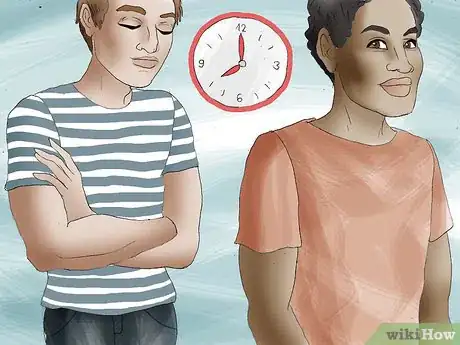
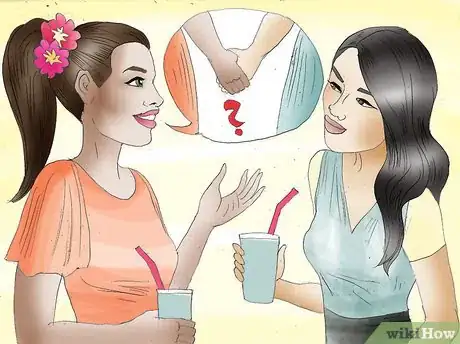
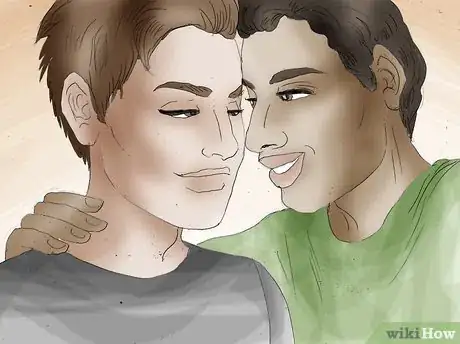


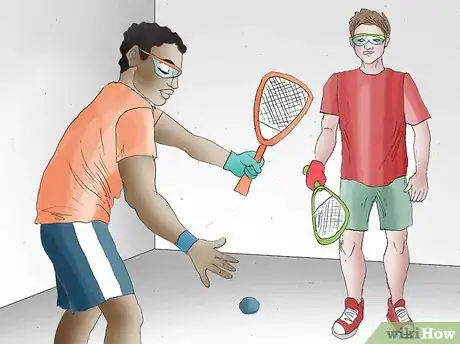


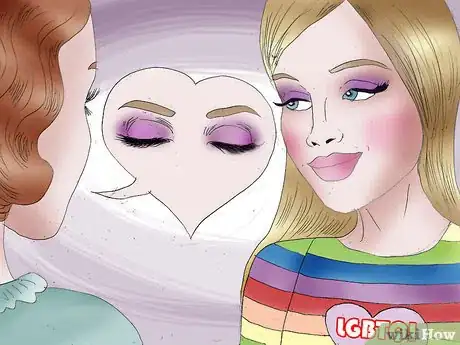
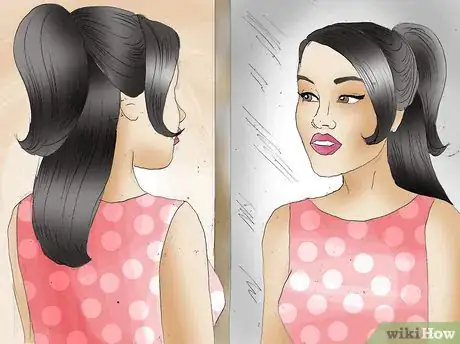
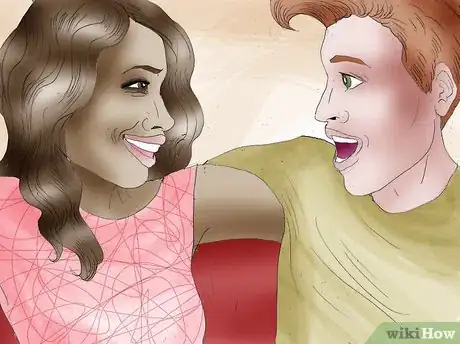
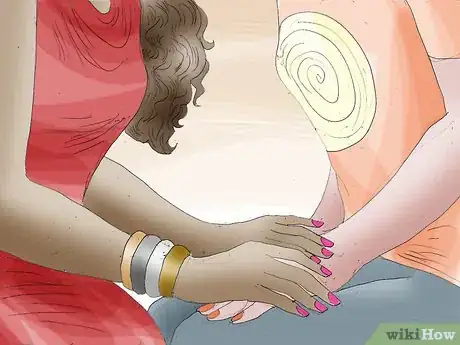
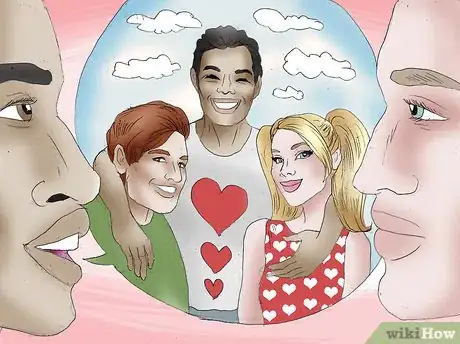
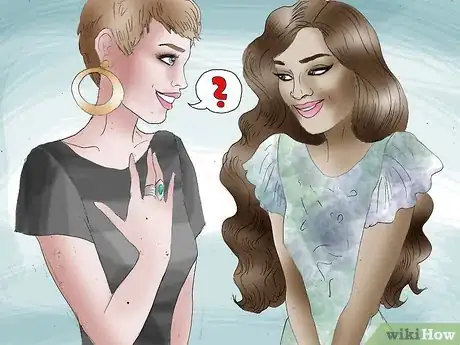
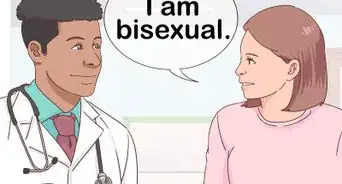
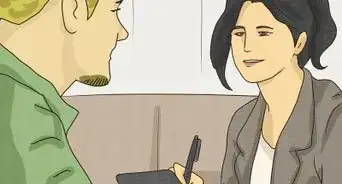
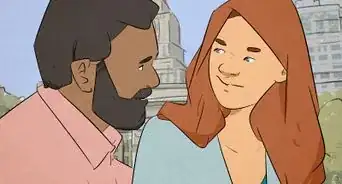
-Step-15-Version-3.webp)
-Step-8.webp)

-Step-20.webp)
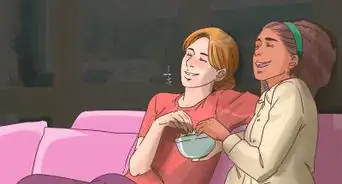

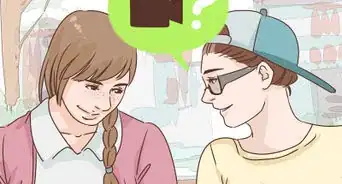
-Step-6-Version-2.webp)
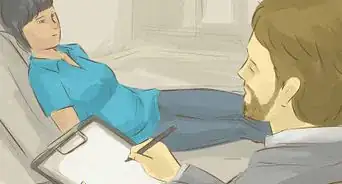
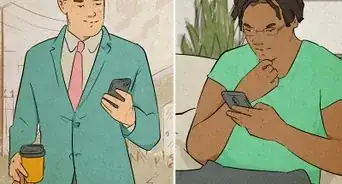
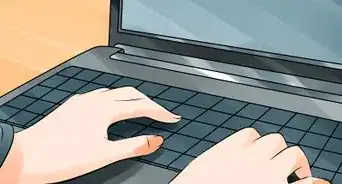










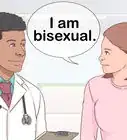
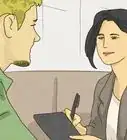
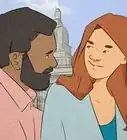
-Step-15-Version-3.webp)


































